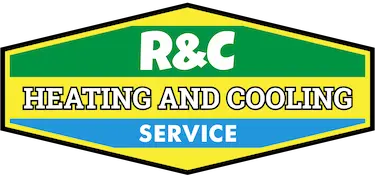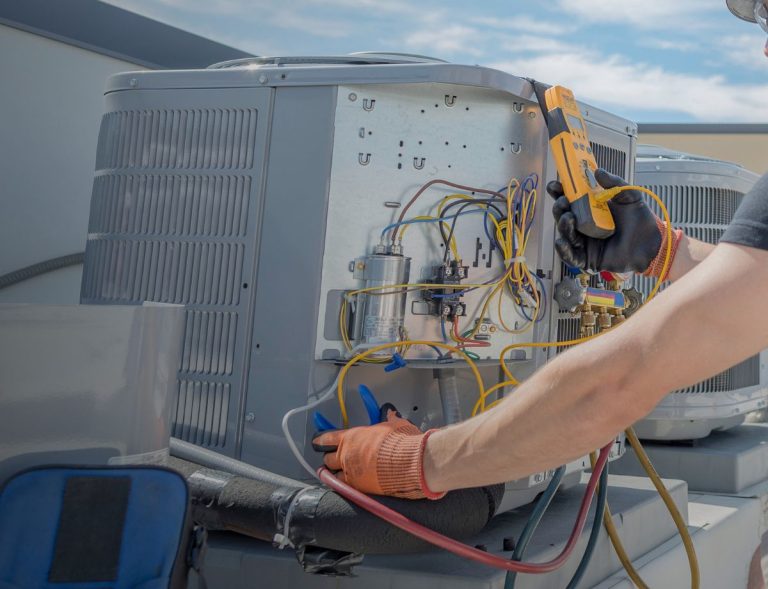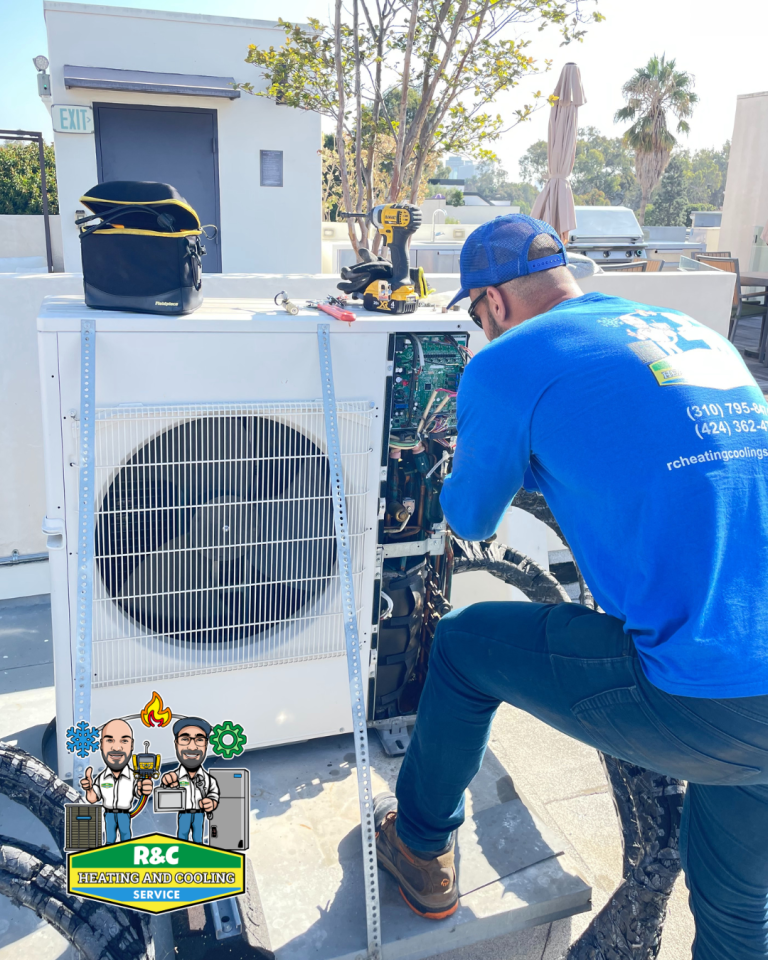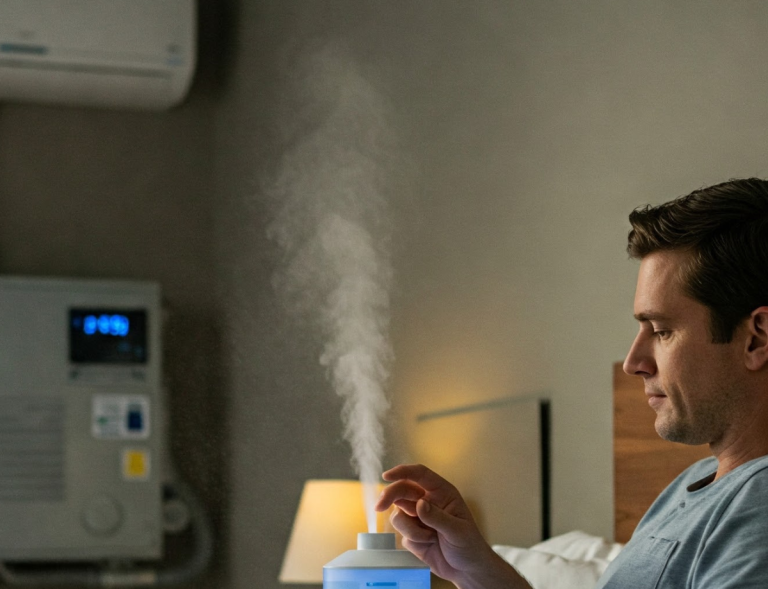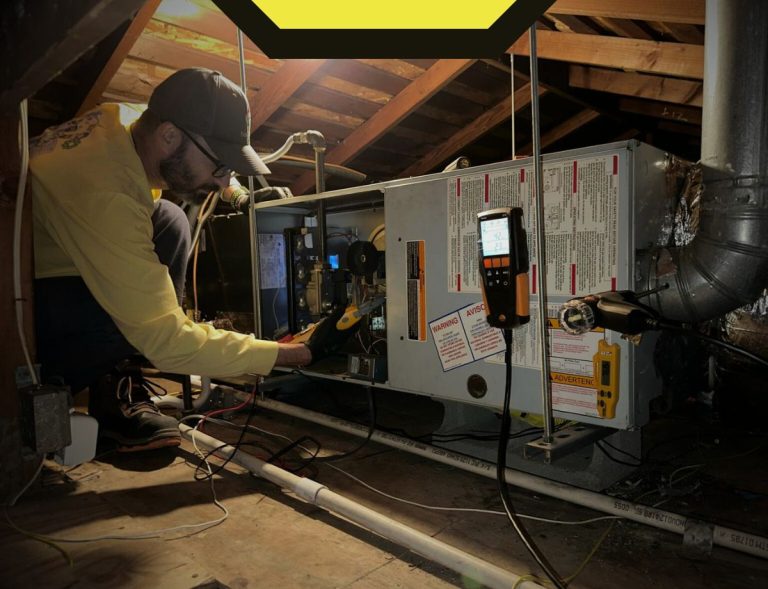DIY AC Troubleshooting: Simple Fixes Anyone Can Do
Imagine it is a hot summer day. Your air conditioner suddenly stops working. The room gets hotter. You start to wonder if you need a professional or if you can fix it on your own. The answer might be simpler than you expect.
This guide will help you troubleshoot your air conditioner by yourself. You will learn easy solutions that save you time and money. You won’t need to wait for a repairman. You will also understand the parts of your AC and how to fix common issues. This way, you can keep your cooling system working well.
Key Takeaways
- Fixing your AC yourself can save you time and cash compared to hiring someone.
- With some simple tools and around $100 for parts, you can often fix your air conditioner in just a few hours.
- Basic AC problems, like a broken contactor or capacitor, can be easily fixed by you.
- Keeping up with maintenance, like changing filters and cleaning, can help prevent expensive failures.
- Knowing when to get a professional is important to make sure your AC is fixed safely and well.
Understanding Your AC’s Basic Components
To fix and maintain your air conditioning, it’s important to know its parts. Central air systems have several key parts. Each part plays a role in cooling your home.
The Anatomy of a Central Home Air Conditioner
The main parts of a central AC system include the thermostat, air filter, blower, evaporator, condenser coil, and compressor. The thermostat helps you control the temperature in your home. The air filter traps dirt and helps make the air cleaner.
The blower pushes air over the evaporator. This part contains refrigerant that cools the air. The cooled air then moves through the ductwork.
The hot refrigerant flows to the outside condenser coil. There, it cools down. The compressor is like the heart of the system. It changes the pressure of the refrigerant.
Understanding how these AC parts work is important. It helps you identify and solve problems with your air conditioning system.
Common Easy-to-Fix AC Problems
As a homeowner, you may have various air conditioning (AC) problems. Some of these problems are easy to fix. Understanding the common issues and how to solve them can help you save time and money. Let’s explore some simple AC problems you might experience.
AC Not Blowing Cold Air
If your AC isn’t cool, start with the thermostat. Ensure it’s set to “cool” and the temperature is lower than the room’s. If the thermostat is okay, check the air filter. A dirty air filter can block air flow, making the AC work harder.
Clean or replace the filter as needed.
Insufficient Cooling
There could be several common reasons for your AC not being cool enough. First, look for anything blocking the outdoor unit. A blockage can stop airflow and make the AC work poorly. Also, be sure all air vents are open and clear.
When vents are closed or blocked, the AC has to work extra hard, which causes uneven cooling.
Water Leaks
Water leaks from your AC happen a lot. This usually occurs when the drain line is blocked or there is an issue with the condensate pump. If you notice water near the indoor unit, try to clear the drain line or check the pump.
Fan Problems
Problems with the fan motor or blades can lead to issues with the AC. If the fan does not work properly, air circulation gets bad. This makes cooling less effective. Look for blockages or damage on the fan and fix it if you need to.
Knowing how to fix common AC issues can help you fix them without needing a technician. Taking care of your AC and making quick repairs can help it last longer and work better.
Step-by-Step Guide to Resetting Your AC System
If your central air conditioning system has issues, like the compressor or fan not starting, try resetting it. A reset can also help if there are power outages or if circuit breakers are tripped. Just follow these easy steps to reset your AC and make it work well again.
- Look for the reset button on your AC unit. It is usually on the outdoor part or near the electrical box.
- Turn off the power to the AC system at the circuit box. This will safely remove any electric charge.
- Press and hold the reset button for 3 to 5 seconds until you hear three beeps. This means the reset worked.
- Wait about 60 seconds for the system to fully reset before turning the power back on at the circuit box.
- Once the power is back, your AC should start after a short delay. It will go through its regular startup process.
If the reset doesn’t work or the problems keep happening, there could be a larger issue with your air conditioning system. In this case, it’s best to call a professional HVAC technician, like those at One Hour Heating & Air Conditioning, to check it out and help with repairs.
Regular care and service of your AC unit can help avoid needing resets often. It makes sure your AC runs well all year.
Tools Needed for Home AC Repair
Having the right tools is important when you fix your home’s air conditioning (AC) system. These tools help you find electrical issues and replace parts. They make doing AC repair easy and make you feel sure while doing it.
A multimeter is essential for fixing AC units. It tests power and checks voltages. It can also find electrical problems that could cause your AC to stop working. A voltage detector is important, too. It helps you find live wires and ensures your system is safe before you begin your work.
You will need insulated screwdrivers and a socket set. These tools help you close and open panels and covers. They make it simpler to see and change parts in your AC unit.
- Multimeter: A must-have tool for finding electrical problems in air conditioning units.
- Refrigerant Gauges: These help to check the pressure in AC systems to spot issues.
- Screwdrivers and Wrenches: Tools needed to open panels, adjust parts, and tighten connections.
- Pump: Essential for taking out moisture and air from refrigeration lines.
- Leak Detector: A key tool for finding refrigerant leaks in AC units.
With these AC repair tools, you can do many DIY tasks. This will save you time and money later on.
When to Stop and Call a Professional
This guide helps you fix many AC problems by yourself. However, there are times when you should call a licensed HVAC technician. Problems such as compressor replacement, low refrigerant issues, and duct problems are better handled by experts.
Signs of big AC problems mean it’s time to call an expert. Weird sounds like hissing or clanging could show air leaks or parts that are loose. If your home’s temperature isn’t steady or your bills are high, it’s a sign of a larger problem.
- Compressor replacement: If your compressor needs changing, it’s best to leave this task to the experts. Trying to do it yourself might cause more damage or safety risks.
- Refrigerant problems: If there are leaks in the refrigerant system, you need an expert to check and fix it. This helps it work right and prevents harm to the environment.
- Duct issues: Problems in your home’s ductwork, like clogs or air leaks, can harm how well your AC works. This may need help from a professional.
When you feel uncertain, it’s a good idea to call a skilled HVAC technician. They can check the problem and find a trustworthy solution. Trying to fix big AC problems on your own can cost you more later. It’s better to let the experts deal with the hard tasks.
How R & C Heating and Cooling Service Can Help You
When you think about your home’s air conditioning, you need a trusted service. R & C Heating and Cooling Service is your best choice for HVAC repair, AC care plans, and experienced HVAC workers.
Need help with a sudden AC failure or regular care? R & C Heating and Cooling Service can help you. Their team is available 24/7 for urgent repairs. They offer appointments the same day or the next day to get your AC running again fast.
They fix common problems like clogged air filters and dirty coils. They also deal with harder issues. Their skill makes sure your AC works well.
R & C Heating and Cooling Service has plans to help care for your systems. These plans include regular checks, cleaning, and tune-ups. This helps them find and fix problems before they get worse. With R & C Heating and Cooling Service, you can feel good knowing your AC is well looked after and good for summer.
Conclusion
With some basic knowledge and the right tools, many homeowners can fix common air conditioning issues on their own. Tasks like resetting the system and cleaning filters and evaporator coils can help your AC unit last longer. These DIY tasks are simple and useful.
But it’s important to see how regular help for your AC is valuable. While you can fix some small problems yourself, bigger issues like refrigerant leaks or electrical issues require a professional. Regular check-ups by a pro keep your AC working well and lasting for years.
Keeping up with regular tasks like changing air filters and cleaning the outdoor unit helps your AC work well. This way, you can avoid costly repairs in the future. Doing simple AC maintenance and having professional help can make your AC last longer. These steps help keep your home comfortable and in good shape.
To ensure your AC keeps running smoothly and efficiently, rely on the experts for any major repairs or professional maintenance. Whether you’re facing an issue or just want to keep your system in top shape, the team at R & C Heating and Cooling Service is here to help. Give us a call at (310) 795-8474 to schedule an appointment or learn more about how we can keep your home comfortable year-round!
Frequently Asked Questions
What should I look at first if my AC is not cooling well?
Start by looking at the thermostat settings. Make sure it’s on “cool” and that the temperature is lower than the room temperature. Also, check the air filter. A dirty filter can block airflow and lower how well it cools.
How often should I replace the air filter in my AC?
It’s a good idea to look at your air filter every month. This is important during busy seasons like summer and winter. You should change the filter every three months. However, you might need to change it more often if it gets dirty quickly.
What basic tools do I need for DIY AC repairs?
For simple repairs, you will need a multimeter to find electrical problems, a set of screwdrivers to open electrical panels, and a socket set. A voltage detector is also handy to keep you safe when working with electricity.
What are the signs that I should call a professional to repair my AC?
You should call a professional if you have difficult problems like compressor issues, refrigerant leaks, or uneven home temperatures. If you hear odd noises or notice signs of electrical issues, it is also safer to talk to a technician.
Can regular care stop usual AC issues?
Yes, regular care like cleaning the filters, checking the refrigerant levels, and making sure the outdoor unit is free of junk can stop many usual issues. This helps your AC work well and keeps it running longer.
